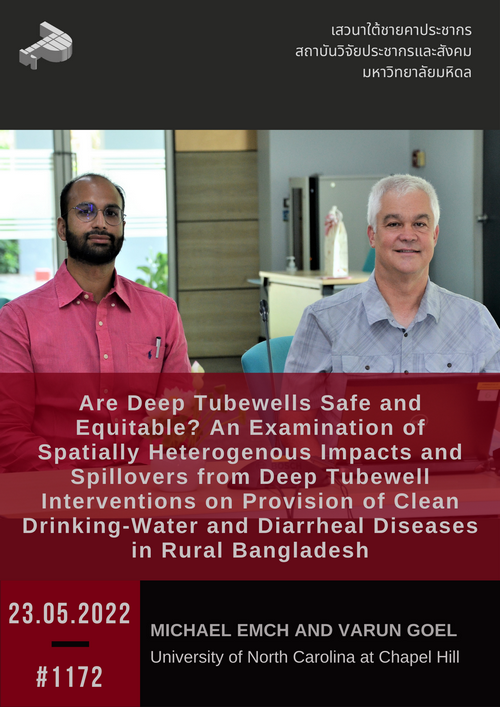Arsenic poisoning and childhood diarrhea are major drinking-water related problems in rural Bangladesh. To mitigate these problems, thousands of deep tubewells that extract ground water from the deep aquifer have been installed. In addition to mitigating arsenic, the microbial water quality from deep tubewells is typically better than shallow tubewells at source. However, the effect of deep tubewell use on childhood diarrhea is not well understood and there are concerns that reliance on these wells may have unintended health consequences. Compared to shallow tubewells, deep tubewells are more expensive and are often farther away from most households. Despite lower risk at source, households that rely on deep tubewells may store their water longer and therefore have higher risk of contamination at point-of-use. This paper investigates the effectiveness of deep tubewell interventions to provide clean drinking-water and reduce diarrheal disease risk in children under five years of age in rural Bangladesh. We examine the role of geographic context to determine the situations under which these interventions work best. By doing so, we address three often overlooked challenges in measuring the effectiveness of population health interventions: 1) potential for unintended consequences, 2) potential for spatial variation in the effectiveness of an intervention, and 3) the role of geographic factors at multiple spatial scales.
Facebook Live IPSRMAHIDOLUNIVERSITY: https://fb.watch/daZp_AtDxa/
